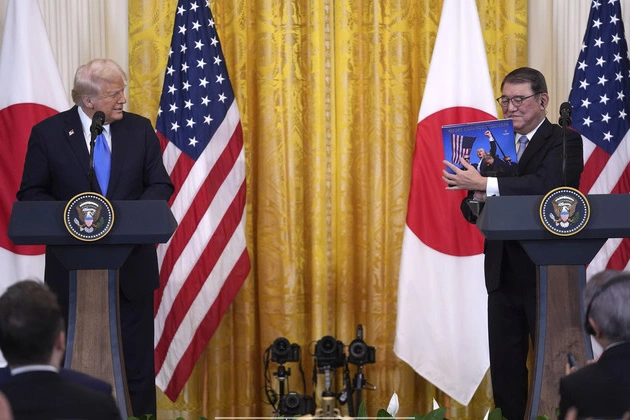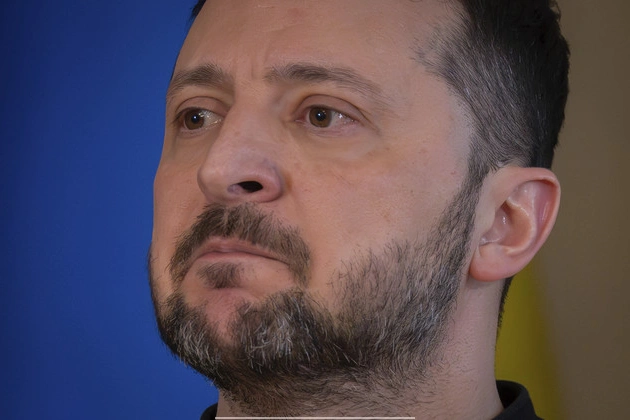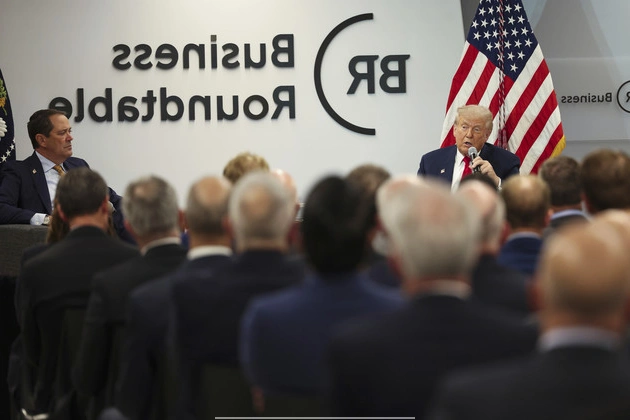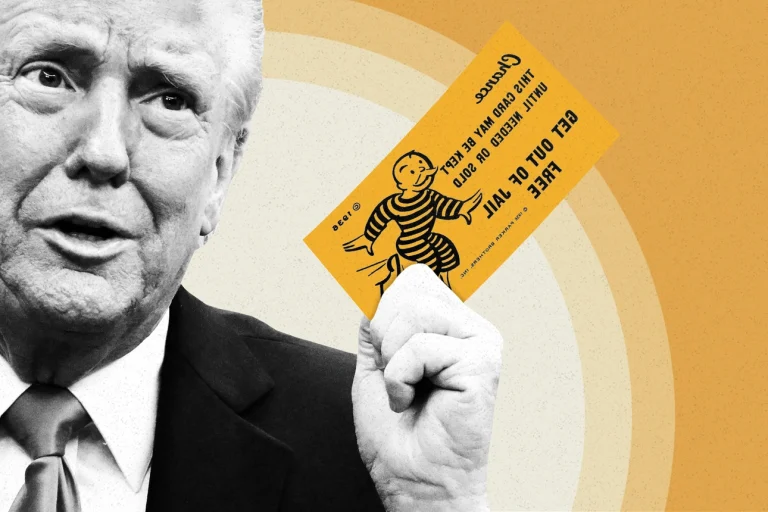
President Trump’s Diplomatic Approach
President Donald Trump offered to find a middle ground to resolve the impasse over Japan’s Nippon Steel push to acquire U.S. Steel following a meeting on Friday with Prime Minister Shigeru Ishiba, who he praised as a “great leader.”
“We’re doing it as an investment, no longer a purchase,” Trump said of the U.S. Steel transaction.
But it was unclear what that would mean in practical terms and Trump did not immediately explain. Trump said he would personally mediate between U.S. Steel and the would-be Japanese investors next week. Former President Joe Biden had blocked the purchase, asserting that a strong steel industry is critical to America’s national security and economic resilience.
Strengthening Bilateral Relations
Amid fast-growing doubts about America’s reliability as an ally, Trump downplayed any daylight between the U.S. and Japan, speaking glowingly about his counterpart and the importance of the bilateral relationship. Trump began an East Room press conference by presenting Ishiba with a photo of them in the Oval Office earlier, then declared the U.S. “totally committed” to Japan’s security and vowed to strengthen economic ties.
“He’s got the qualities of greatness,” Trump said of the embattled leader, whose governing coalition just collapsed.
Building Economic Cooperation
Determined to strike a chord with Trump to improve his political standing at home, Ishiba arrived at the White House with promises to increase Japanese investment in the U.S., to cooperate on AI, semiconductors and defense and to work quickly to rebalance a trade deficit that favors Japan.
Asked about his first impressions of Trump, Ishiba described him, according to a translator, as “intimidating” on television but “powerful” and “sincere” in person. The Japanese prime minister quickly added that he wasn’t “sucking up.”
Trade and Security Agreements
Trump said he planned to sign a memorandum agreeing to reciprocal trade next week. He seemed appeased by Ishiba’s announcement that his country would seek to invest another $1 trillion in America, along with the Japanese prime minister’s agreement to help resolve the U.S. Steel transaction to benefit both countries.
“We have a trade deficit of over $100 billion but we’re going to work that out, I think very quickly,” said Trump, who described major investments by Japanese companies and plans to dramatically increase defense spending and to import more American liquified natural gas.
The president, who at times has shrugged at the prospect of stronger nations conquering smaller ones, also vowed to use “the full strength of American deterrence” to maintain security in the Indo-Pacific. He and Ishiba, Trump said, “agreed to cooperate even more closely to combat the Chinese economic aggression, which is quite aggressive.”
Future Prospects and Diplomatic Relations
For Japan’s new prime minister, who worked feverishly to secure this early White House meeting, the deliverables were less tangible — wins marked not by new American commitments but by the avoidance of new provocations. Trump is not threatening Tokyo with new tariffs or floating the U.S. annexation of any of its territory, as he has with other allies. Commitments to maintain America’s significant military presence in Japan remain in place.
For a nation so dependent on the U.S. economically and militarily, the status quo might be enough for now, given allies’ fears about Trump’s unpredictability and desire to show dominance.
Trump did not rule out future tariffs against Japan if the trade imbalance between the two countries isn’t addressed, but suggested that it won’t be difficult for Tokyo to do so.
“I don’t think it will be any problem,” he said. “They want fairness also.”
After Ishiba demurred on whether he wanted to see Trump resume talks with North Korean leader Kim Jong Un, the president made it clear he hoped to do just that. “We will have relations with North Korea, with Kim Jong Un,” he said. “I get along with him very well.”
Trump’s unpredictability prompted Ishiba’s handlers to forgo a pre-prepared statement of key talking points for Ishiba to recite to Trump, according to a Japanese foreign ministry official granted anonymity because they weren’t authorized to speak on record about sensitive diplomatic discussions. Instead Ishiba and his staff had a special brainstorming meeting, the official said, “in order to prepare ourselves for any possible demands coming from the U.S. side.”
That included preparing a data graphic for Ishiba to show Trump with maps and graphs highlighting Japan’s role as top foreign investor to the U.S., the official said. The slides showed that Japan’s investment has grown since 2019 and that Japan is the number one foreign investor in 11 states (most of them Republican-leaning) and second highest in 14 other states (most of them also who voted for Trump), as well as the largest job creator in 10 states.
Ishiba, in looking to build a personal relationship with Trump, is following the diplomatic template of former Japanese Prime Minister Shinzo Abe, who he said, during his initial remarks beside Trump in the Oval Office, “laid the foundation for such a robust relationship between our two countries.”
Abe, who was assassinated in 2022 after leaving office, built a strong rapport with Trump. The first foreign leader to visit Trump Tower after the 2016 election, Abe showered Trump with gifts and joined him on the golf course as well as at a sumo wrestling tournament during Trump’s 2019 visit to Japan. He even arranged for Trump to present a presidential trophy at the event.
Abe’s charm offensive, along with major defense commitments, enabled Japan to avert a trade war after Trump withdrew the U.S. from a multilateral trade agreement with several countries in the Indo-Pacific that had been negotiated by the Obama administration.
After Trump said tariffs could still be on the table on Friday, Ishiba reacted calmly. “If it is mutually beneficial, tariffs should be set,” he said. When asked a follow-up question about whether Japan would retaliate in the event of the U.S. imposing tariffs, the prime minister demurred again.
“I am unable to respond to a theoretical question,” he said.
“That’s a very good answer,” Trump responded, smiling. “He knows what he’s doing.”















